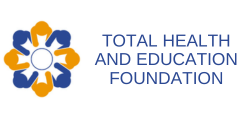The fourth factor I want to talk about here is something Vijay Yogendra called Innateness. Vijay felt that “Each child comes with a gift, and it is up to us (parents and teachers) to unwrap it!”
Innateness embraces a child’s talents and strengths but it is more than that. It is that unique quality a child possesses that when they can connect with it inwardly and express it outwardly, gives them a great sense of peace and contentment and fulfilment. Children’s special interests and excellence may not be accessible in their educational environment, so parents may need to look further afield to provide children with these enriching opportunities.
The contentment, creativity and enhanced self-esteem these experiences can give children, is well worth this extra effort.
In terms of mental health, a child who knows herself, and can be deeply engaged in her favourite pursuit will be less influenced by a negative peer group and more settled.
Vijay says a bit more about how parents can help children find this quality in themselves:-
Each child comes with a gift which he loses sight of in the confusion of expectancies. Parents’ expectancies, imposed on the children, make them forget their innateness. We narrow the children down. In following what is inherent, a person can achieve excellence, but if he or she compromises or is pushed into something else, he or she will be mediocre as well as unsatisfied.
The more care, love and understanding children receive, the greater will be their ability to accomplish what is inherent in them. Our job as parents and teachers is to draw out and nurture what is inherent in them. Things can be inherent but not apparent, until they have the right climate in which to flourish. The child’s innateness is the key – find this and the child will blossom. Until the child finds his or her innateness, he or she remains unhappy.
Innateness is the result of love, accommodation, guiding, giving alternatives, encouragement and patience. Innateness involves finding things that will open children up. If a child shows any signs of excellence we should aim to develop him in that area. Parents need to find an area of strength in the child and develop it without the use of competition.
A fifth protective factor for children’s mental health I believe, is the practice of Positive values. Values is a very old-fashioned, not ‘cool’ word these days and I rarely see it referred to in current mental health literature.
However, the emotional restraint and self-control required in practising values such as courage or patience, really strengthen a person and promote self-belief. When under pressure, many of us might tell a small lie, cave in to our fears, impulsively make decisions or say hurtful things in retaliation. So if instead we can give children some principles to guide their responses in difficult situations, it can have a much better outcome for them. For example, my father always said to us children: If you can’t say something nice, don’t say anything at all! And my mother said: Try not to hurt anyone in your life. These are guidelines for living and a child who can be kind and patient and forgiving and truthful will be popular with her peers and well-liked by adults as well. It is even more helpful if parents can show these values through their example, as that is what children will copy more readily.

